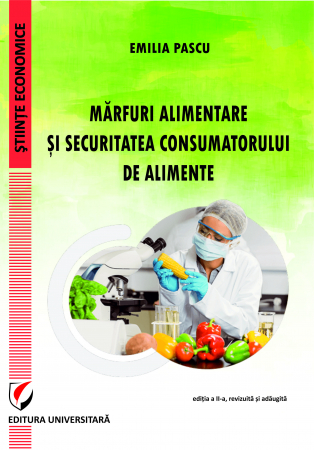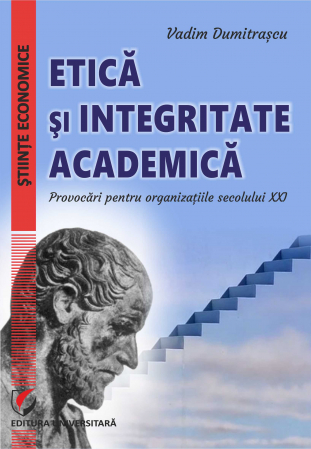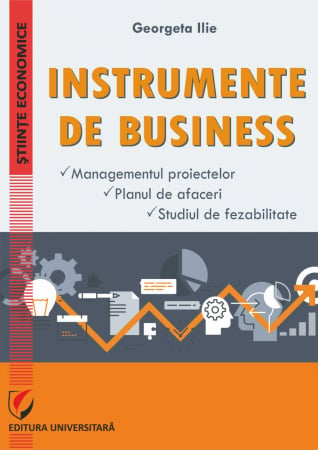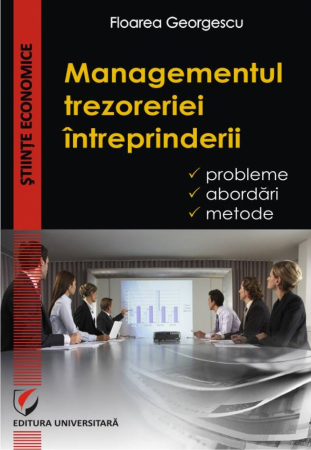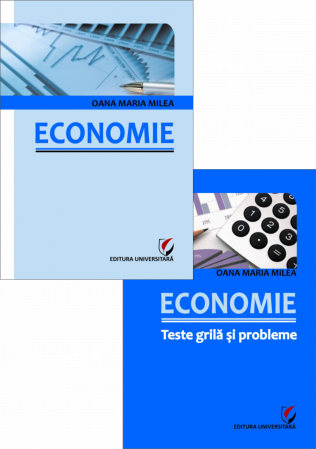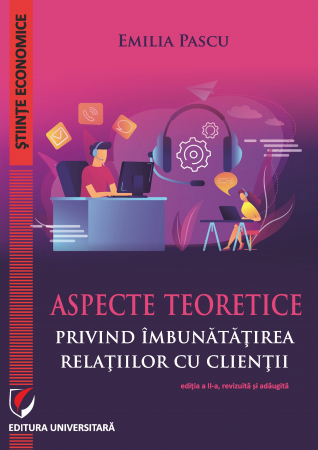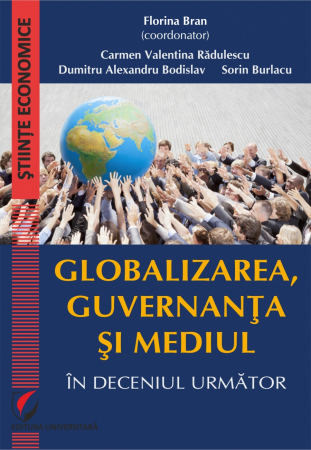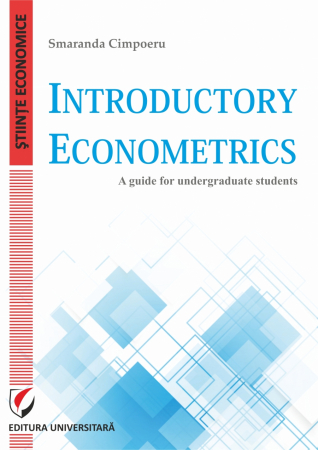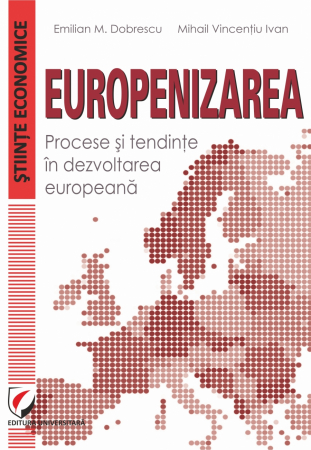ISBN: 978-606-28-0115-1
DOI: 10.5682/9786062801151
Publisher year: 2014
Edition: II, revizuita
Pages: 272
Publisher: Editura Universitara
Author: Emilia Pascu
- Description
- Download (1)
- Authors
- Content
- More details
- Where to find it
- Reviews (0)
Under these conditions, the quality of the products through its economic effects firmly determines the competitiveness of the companies considering the fact that any consumer, before purchasing a product, checks by a brief control the quality of the purchased product in relation to the purchase price.
As humanity becomes more aware of the interdependence between goods, man and the environment, it becomes increasingly important the systemic approach to this relationship, along the entire trajectory, from production to consumption, taking into account both current requirements for consumer protection and the environment. surrounding. Commodity science provides knowledge about commodities and establishes the relationships between human needs and their world, in a variety of situations, by studying the properties of commodities in close connection with their quality.
This paper includes a series of important and topical issues, connected with classical and modern disciplines, where they are taken over and adapted to its specifics, elements that allow the study of the fundamentals of trade science and is useful to those who study or are interested in the issue of goods.
The approached theme is a fundamental one for the economic education, it integrates the notions of quality, utility, necessity, economic-social efficiency, being subordinated to the one studied by the discipline entitled in the past Merceology. Etymologically, the term merchandise derives from the Latin word merx = merchandise (mercis = of merchandise) and the Greek word logos (science, knowledge). Linguistic correspondents in other languages are: study of commodities (English), warenkunde (German), merceologia (Italian), tovarovedenie (Russian), connaissance des marchandises (French).
-
Notiuni privind calitatea produselor și serviciilor – instrument in activitati economice
Download
Is PhD in Economics and holds at the Faculty of Tourism and Commercial Management Dimitrie Cantemir Christian University, Bucharest, courses Fundamentals goods science, Food products and consumer safety and design aesthetics goods. Scientific work of the author is embodied in titles like: Examination of goods, Design aesthetic of merchandise, customer relationship management, Food safety and consumer goods etc. as author and co-author, as well as numerous articles and studies, covering the area of quality products and services with a focus on consumer safety and creating a long-term relationship with clients.
Chapter 1 - Quality of products and services / 11
1.1. Definitions of quality / 11
1.2. Components of product quality / 14
1.2.1. General notions regarding the properties of goods / 15
1.2.2. Notions about the quality characteristics of the products / 18
1.2.3. The complex and dynamic character of quality / 33
1.2.4. Hypostases and quality functions / 37
1.2.5. Factors that determine and influence product quality / 39
1.3. Quality of services / 42
1.4. Quality characteristics of services / 44
1.5. Classification of services / 45
Chapter 2 - Assessing the quality of goods / 49
2.1. Quality indicators / 50
2.2. Quality assessment methods / 51
2.3. Synthetic quality indicator (Icq) / 53
2.1. Non-quality indicators. Demerit method / 57
2.2. Graphic analysis of the quality level of the products / 58
2.3. Qualitative reception of batches of goods / 60
Chapter 3 - Classification and coding of goods / 75
3.1. Requirements for classifications / 76
3.2. Coding and classification of products and services / 82
3.3. Classification and coding systems used in international trade / 86
Chapter 4 - Packaging and storage of goods / 87
4.1. Packing and packaging / 87
4.2. Packaging functions / 89
4.3. Classification of packaging and packaging materials. Packaging methods / 93
4.4. Packaging design / 98
4.5. Preservation of products / 101
Chapter 5 - Standardization and marking activity of goods / 111
5.1. Standardization activity / 111
5.1.1. Classification of standards / 114
5.1.2. Basic principles of standardization activity / 117
5.1.3. Standardization in Romania / 118
5.1.4. European standardization bodies / 119
5.1.5. The main international standardization organizations / 122
5.2. Marking of products and services / 125
5.2.1. Types of brands / 127
5.2.2. Trademark functions / 128
5.2.3. Classification of marks / 129
5.2.4. Ecological marking of products and packaging / 133
5.2.5. Labeling of goods / 138
Chapter 6 - Consumer and environmental protection / 145
6.1. The consumer and his rights / 146
6.1.1. Forms of consumer protection / 148
6.1.2. Consumer rights / 150
6.1.3. Bodies with the role of supporting consumer protection in Romania / 152
6.1.4. Consumer protection legislation / 169
6.2. Environmental protection / 172
6.2.1. Impact of packaging on the environment / 173
6.2.2. Sustainable development, ecodesign and eco-design - Environmental protection tools / 176
6.2.3. Favorable regulations for environmental protection / 181
Annex 1 - Knowledge Verification Questions / 185
Annex 2 - Comparative analysis of the quality of products sold on the domestic market - practical example / 208
Bibliography / 269
In the world economy of this beginning of the millennium can be highlighted certain trends such as rapid renewal and unprecedented diversification of the supply of goods due to increasing penetration of technical progress in production, globalization of markets, increasing customer requirements, and lately the emergence of rationalization. strict use of all resources, a necessity required by the economic and financial crisis at the end of this first decade.
Under these conditions, the quality of the products through its economic effects firmly determines the competitiveness of the companies considering the fact that any consumer, before purchasing a product, checks by a brief control the quality of the purchased product in relation to the purchase price.
As humanity becomes more aware of the interdependence between goods, man and the environment, it becomes increasingly important the systemic approach to this relationship, along the entire trajectory, from production to consumption, taking into account both current requirements for consumer protection and the environment. surrounding. Commodity science provides knowledge about commodities and establishes the relationships between human needs and their world, in a variety of situations, by studying the properties of commodities in close connection with their quality.
This paper includes a series of important and topical issues, connected with classical and modern disciplines, where they are taken over and adapted to its specifics, elements that allow the study of the fundamentals of trade science and is useful to those who study or are interested in the issue of goods.
The approached theme is a fundamental one for the economic education, it integrates the notions of quality, utility, necessity, economic-social efficiency, being subordinated to the one studied by the discipline entitled in the past Merceology. Etymologically, the term merchandise derives from the Latin word merx = merchandise (mercis = of merchandise) and the Greek word logos (science, knowledge). Linguistic correspondents in other languages are: study of commodities (English), warenkunde (German), merceologia (Italian), tovarovedenie (Russian), connaissance des marchandises (French).
Customer Support Monday - Friday, between 8.00 - 16.00
0745 200 718 0745 200 357 comenzi@editurauniversitara.ro
6359.png)
![Notions Regarding the Quality of Products and Services - A Tool in Economic Activities [1] Notions Regarding the Quality of Products and Services - A Tool in Economic Activities [1]](https://gomagcdn.ro/domains/editurauniversitara.ro/files/product/large/notiuni-privind-calitatea-produselor-i-serviciilor-instrument-in-activitati-economice-898-400916.jpg)
